
KEY:
 Capital
Capital
 Major City
Major City
 City/Place of Interest
City/Place of Interest
 Historical Place of Interest
Historical Place of Interest
REGION
Introduction
Standing in the kitchen of my childhood home, watching a pan of ackee and saltfish blipping away on the stove, my stomach rumbled with excitement.
I grew up in Weymouth, a seaside resort in Dorset on Englands South Coast, where there were few Black people, let alone any Jamaican culture. Yet, in our kitchen at home, as I scooped up mouthfuls of my dads famous ackee and saltfish with torn pieces of fried dumpling, or savoured a slice of caramel-sweet plantain, if I closed my eyes, I could imagine I was in Jamaica. Each bite rooted me further to the island, a place where - at the time I had never even been.
Back then, the only thing I really knew of my fathers birthplace was gleaned from our atlas; Jamaica, measuring almost 235km long and ranging from 35km to 82km wide, is the third biggest island in the Caribbean Sea, and lies South of Cuba and East of the Dominican Republic. The rest was conjured from Dads descriptions of the food and the scenery of this tropical island, with its year-round warm weather, ample rainfall and rich natural habitat for flourishing nature. He would tell us stories of how he climbed mango trees as a boy, sitting in their branches to feast on the sweet flesh until he woke up on the ground, having fallen asleep in a mango-induced slumber. Of his uncle sending him to dig up cassava from a nearby patch for dinner, or how he used to catch crayfish with his hands from the clear bubbling water of the stream that ran through the familys land.
Dads parents, Altamont and Catherine, moved to Darlington in North East England in the mid 1950s. They were part of the Windrush Generation, and Granddad worked as a bus driver. Alty, as he was known, and Catherine left Dad with his grandmother in Jamaica. He wouldnt see them again until he turned nine, when at last they could afford to send for him. Jamaica had been tough on Dad. He had no formal education, and, once his beloved grandmother died, he was left in the care of unkind relatives who made his life insufferable. Yet arriving in the UK was also a shock: the first time Dad had ever worn shoes was on his flight here and he landed in England having lost one.
As a young man, Dad joined the Navy, and, while touring Malta, met my Maltese mum. After they got married, they settled by the English seaside. My brother was born, I followed three-and-a-half years later, and as for Mum and Dad, they both fed us the food they knew. Mum cooked us the Maltese pasta and soups she had grown up on. The Jamaican food from Dad was a salve for his homesickness, crucial familiarity in an unfamiliar world.
As a child, on cold rainy days, I would listen enraptured to Dads tales of childhood in Jamaica. I would try and place myself in this country but, thousands of miles away, it couldnt feel more different. The descriptions of food always transported me best, bringing clarity in a way nothing else could. I did not realise it then, but I was doing what people have always done: using food as a ritual to connect to a place I missed. Even if, for me, I had never actually known the distant land I yearned for.
While we lacked a first-hand connection to his island, the food Dad made for us forged a link. I remember realising that what we cooked at home was different to the food my friends ate... and I couldnt help but feel they were missing out. Few Black people in Dorset, however, meant little to no provision for these incredible Jamaican dishes. Occasionally, wed travel to London to visit relatives and friends. On the way back we would stock up on all the foods and ingredients we couldnt get in Weymouth goat meat, sugar cane, ginger beer, mangos and plantain and wed cram the car boot, ready to fill the freezer to see us through to our next visit.

Whenever we travelled to Darlington to visit Dads parents, without fail Grandma would have a pot of her curry chicken on the stove. She always served it with rice and peas made with kidney beans, never gungo peas. Her curry was so good; I can still remember its peppery taste. It always made the six-hour drive to get there worth it.
During one visit, I asked Grandma to teach me how to make it. There were no measurements, just her innate understanding of when enough was enough. I committed Grandmas instructions to memory, determined to replicate this unbeatable meal. (I did, and youll find the recipe here.)
At home, as soon as I was old enough, I was given small tasks to help out in the kitchen. I started out forming dumplings and peeling plantain, then, as I got older, I would cook the dishes I loved. Saltfish fritters, fried plantain, yam, patties and that special curry chicken. After studying in London, when I moved back to Weymouth to work on the local paper, I would invite my friends round for vast pots of my curry goat.
Being a brown-skinned person in an almost entirely white area can foster a feeling of displacement, of not fitting in: I was looking for something, my roots, perhaps anything to hold on to. Cooking Jamaican food has always been a way for me to celebrate my heritage. But I realise now that it was also a way to create an anchor to Jamaica, just like my dad had done, just like countless people of the diaspora had done before us.
Dad had always been ambivalent about travelling back to his island, given his painful memories of growing up there, and we never pushed. In the absence of facts about my family tree, I filled in the gaps with the things I did know. It brought me comfort to think of my ancestors eating the same foods across the span of different generations and different continents. Our shared culinary history was and remains precious to me.
Then, in 2012, a last-minute change in travel plans saw us book a family holiday to the island, almost by accident. It was a fraught trip, as was to be expected for a journey with so much emotional baggage, but it was incredible. Stepping where my dad had last walked as a boy was incredibly powerful. And to finally eat the dishes I had grown up with, in their country of origin, was affirming. While researching this book in 2021, I went again, and my connection was only cemented. It felt like home.

Motherland is a recipe book, but more than that it is a history of the people, influences and ingredients that uniquely united to create the wonderful patchwork cuisine that is Jamaican food today. Every dish and ingredient tells a story. And that context matters. From the Redware and Tano peoples the islands earliest known settlers to the Spanish and British colonialists, to the enslaved African men and women brought to toil on the land, to the Indians, Chinese and many other peoples who called the island home, everyone left their mark. But, without doubt, it was the men and women from Africa, who against their will came to the Caribbean islands during the transatlantic slave trade, that had the biggest influence on the islands food and culture. This barbaric industry changed the face of Jamaica forever: its population, language, music and landscape, as well as its food. The cuisine is a beautiful product of this violent chapter in world history.

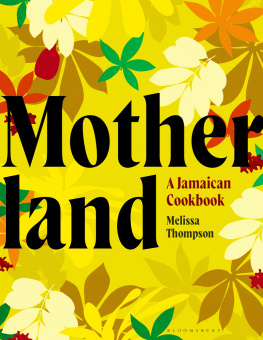
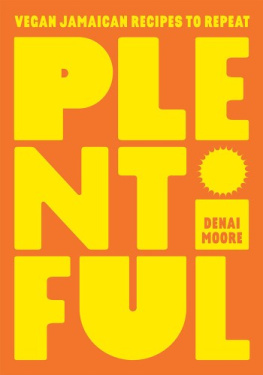


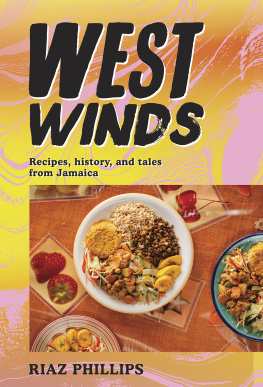
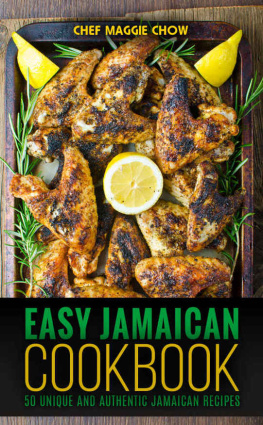
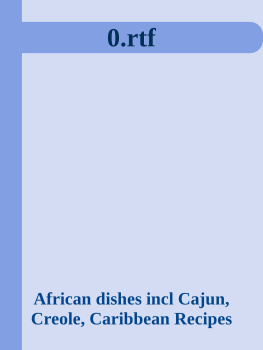
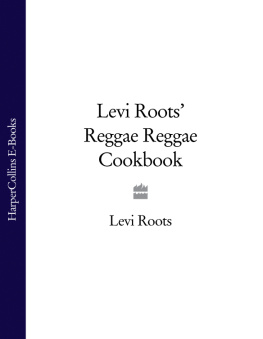
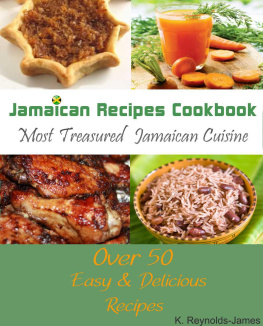
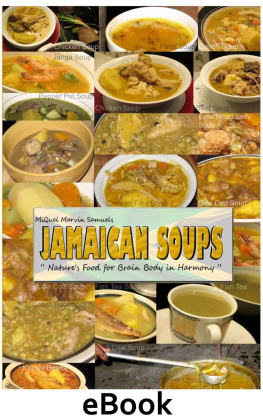
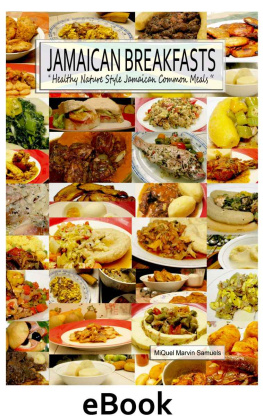
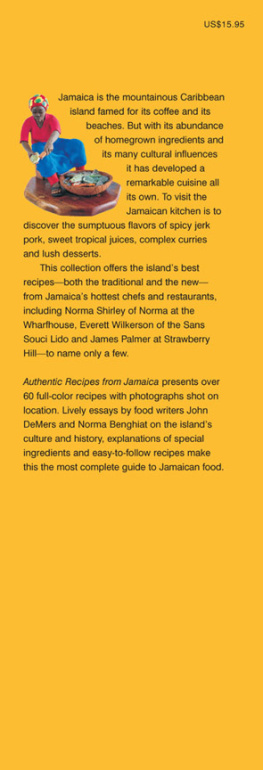



 Capital
Capital Major City
Major City City/Place of Interest
City/Place of Interest Historical Place of Interest
Historical Place of Interest
